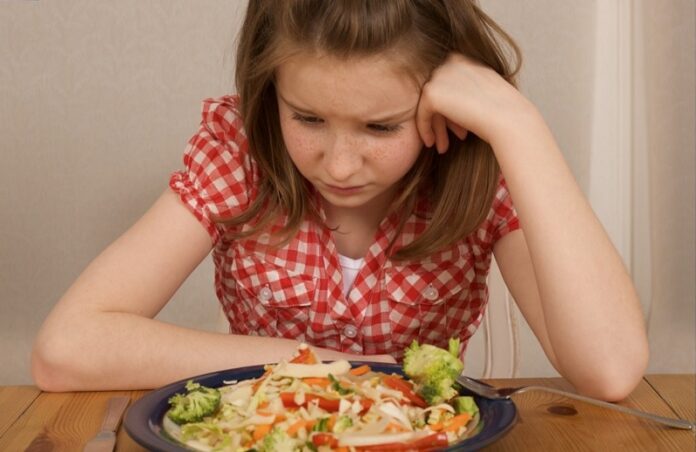Paediatricians have seen a huge rise in cases of anorexia nervosa and other food restriction disorders in this age group, with some reporting a doubling, tripling or even quadrupling of cases compared with the same period last year.
The Royal College of Paediatrics and Child Health (RCPCH) is alerting parents and guardians to look out for signs of eating disorders in children and young people over the holiday period.
The College spoke to paediatricians from around the country working in the field (see below). All had seen an increase in cases in the last year, and all put this down to the effects of the pandemic on young people’s lives.
Dr Simon Chapman, Consultant Paediatrician, (King’s College Hospital and South London and the Maudsley):
I’ve worked in eating disorders for 10 years and I have never known us to be so busy. Referrals since March have tripled.
Dr Nancy Bostock, Consultant Paediatrician, The Croft Child and Family Unit, Cambridge:
In our Tier 4 under 13’s mental health inpatient unit we have seen a three to fourfold increase in children referred to our service with eating disorders, and they are just the tip of the iceberg.
A number of factors are thought to have contributed to increased stress, deterioration in young people’s mental health and an intense focus for some on eating and exercise during the pandemic. These include: isolation from peers during school closures, exam cancellations, loss of motivating extra-curricular activities such as sports, dance/drama/youth clubs; an increased use of social media with young people concentrating on unrealistic ideas of body image; being forced to quarantine (a particular problem for many students newly arrived at university); worries about families’ economic problems; illness or death of loved ones, and fears about contracting the virus.
Dr Karen Street, a consultant paediatrician at the Royal Devon and Exeter Hospital in Exeter and Officer for Child Mental Health at the RCPCH, said:
We are extremely concerned about many children and teenagers’ wellbeing because of the pandemic. Many of them are just not coping. Eating disorders are often related to a need for control – something many young people feel they have lost during the pandemic. Many have described needing a focus and goals which, in the absence of anything else, has for some centred around eating and exercise.
Reduced access to services and face-to-face consultations during the pandemic are thought to have caused an increase in cases where the young person has become severely ill by the time they were seen. Paediatricians reported seeing children and teenagers being brought into emergency departments in need of immediate admission to hospital for physical stabilisation and re-feeding. Waiting lists for eating disorder treatment in mental health services are in many cases becoming completely overwhelmed and specialist inpatient beds are increasingly scarce.
Teachers and university staff often flag concerns about a young person’s weight loss or eating habits. The closure of schools and university classes and move to online lessons has inevitably made this more difficult, coupled with the fact that teachers are already under enormous pressures because of trying to reorganise lessons, manage infection control and cope with reduced staff because of illness. University counselling services are also under extreme pressure.
The College has taken the step of issuing an alert to parents to watch for signs of eating disorders over the holiday season in order to catch problems as early as possible. Christmas can be a stressful time for those struggling with issues around food. Many families will not have seen young people home from university or school for some weeks and may notice marked changes in eating behaviour, exercise patterns and weight. At the same time, new year is when there is often a lot of talk of dieting and exercise, with some people embarking on new year’s resolutions involving crash dieting or exercising more than is healthy.
Dr Karen Street commented:
We know that the earlier eating disorders are spotted (see below for warning signs), the better the chance that a young person can be successfully treated. Eating disorders begin with often quite small changes such as refusing to eat foods that were previously enjoyed. If you’ve noticed a difference in the way your child or teenager approaches food and exercise and it concerns you, talk to them about what’s normal and what is not – often those with eating disorders will try to convince you all is OK but trust your instincts. Seek advice from your GP and from helplines* and if you’re still concerned, contact local eating disorder team.
“Exercise is really important for young people. But too much exercise coupled with reduced eating in a young person who is a healthy weight really needs to be watched as it can quickly become a very serious problem, one with a high mortality rate.







